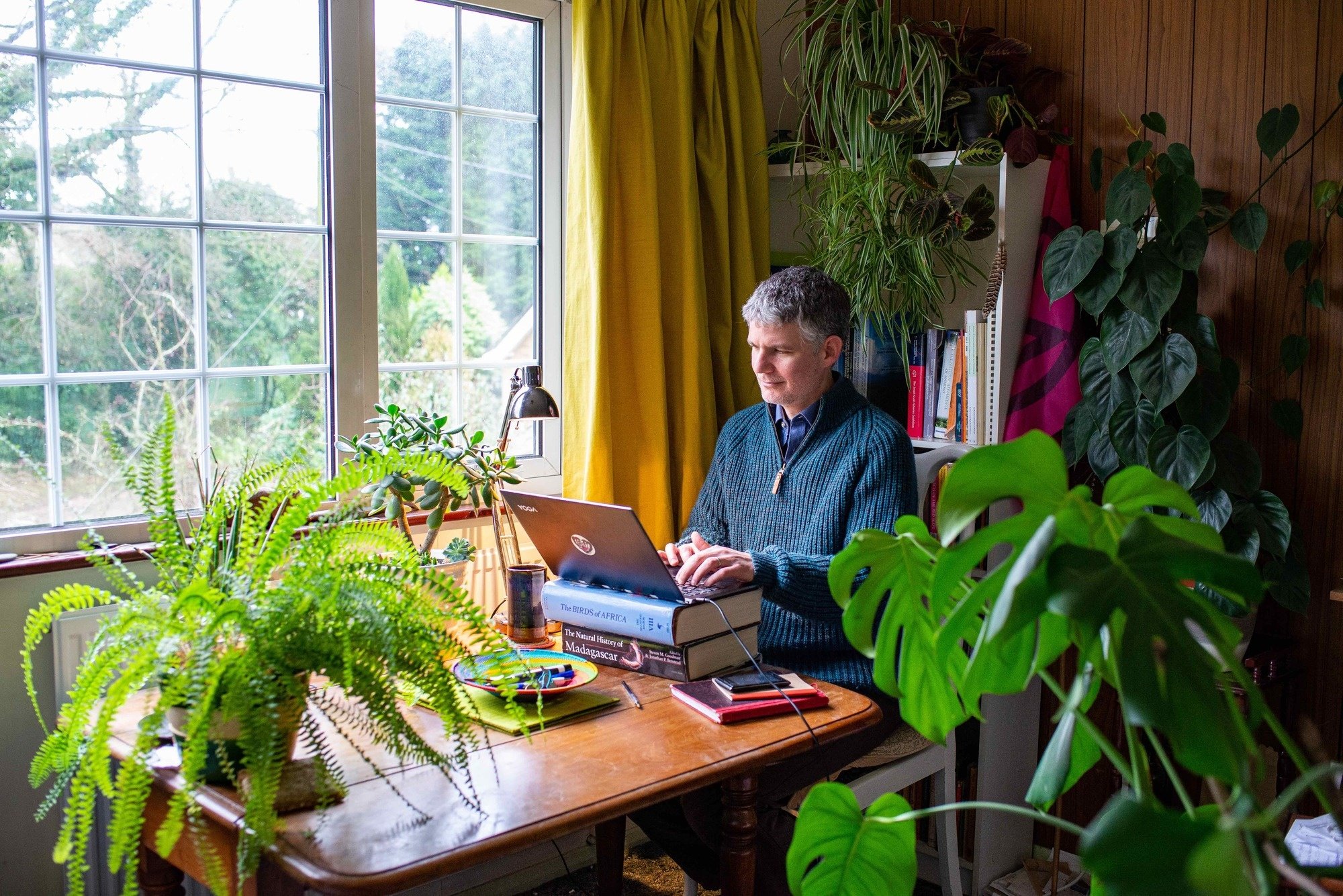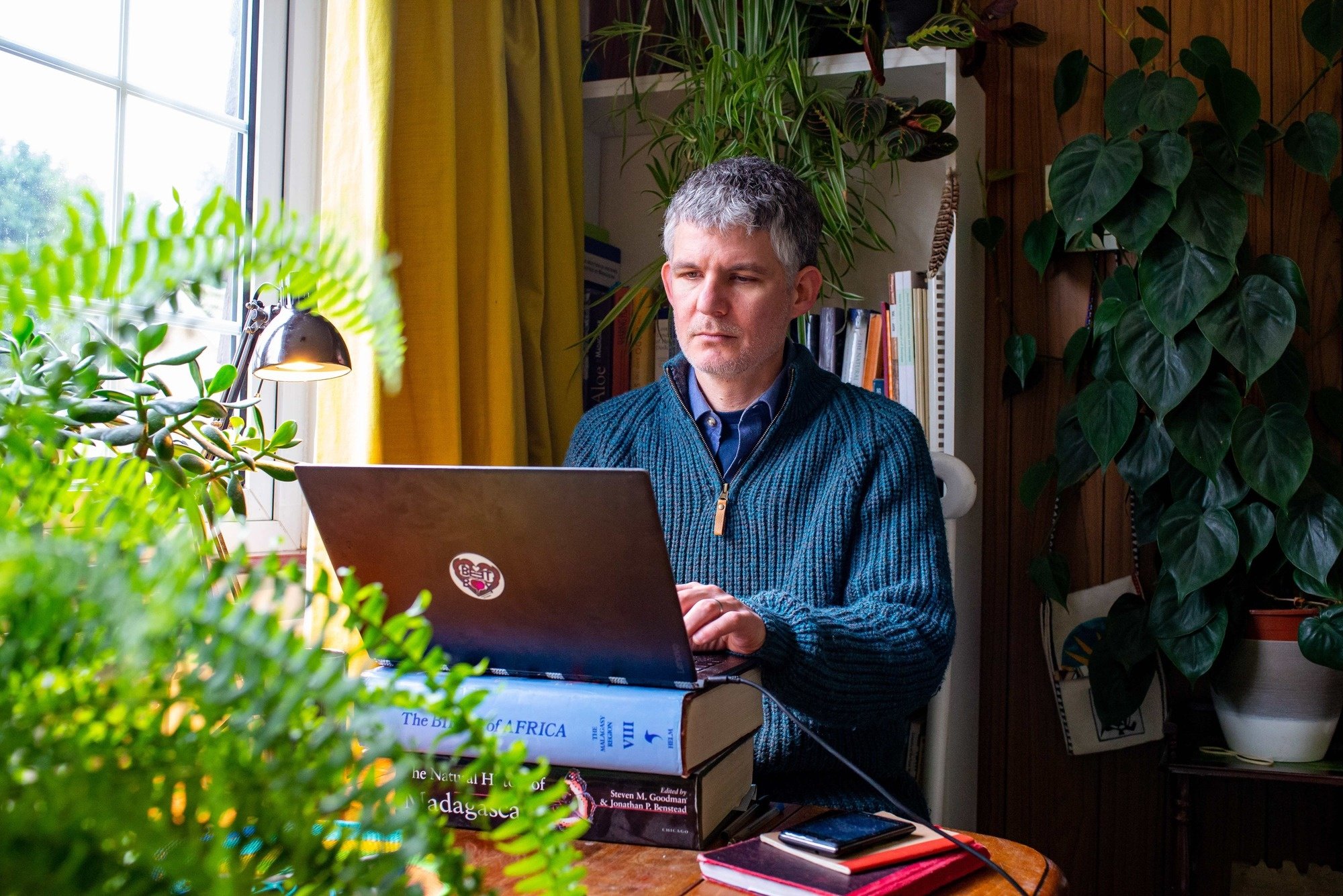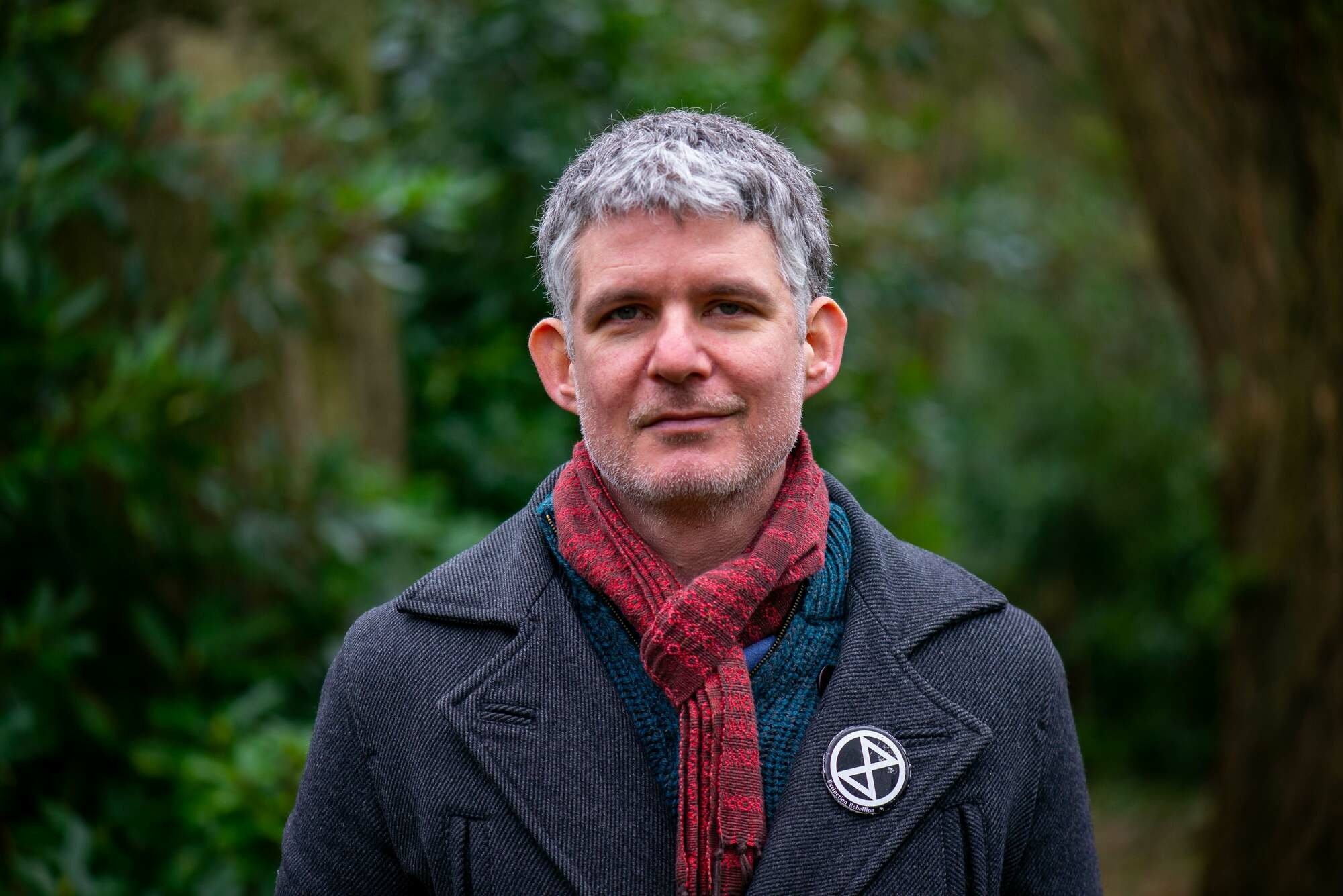Rebel with a cause: Charlie Gardner on being a scientist-activist
28. 1. 2021
8 min.
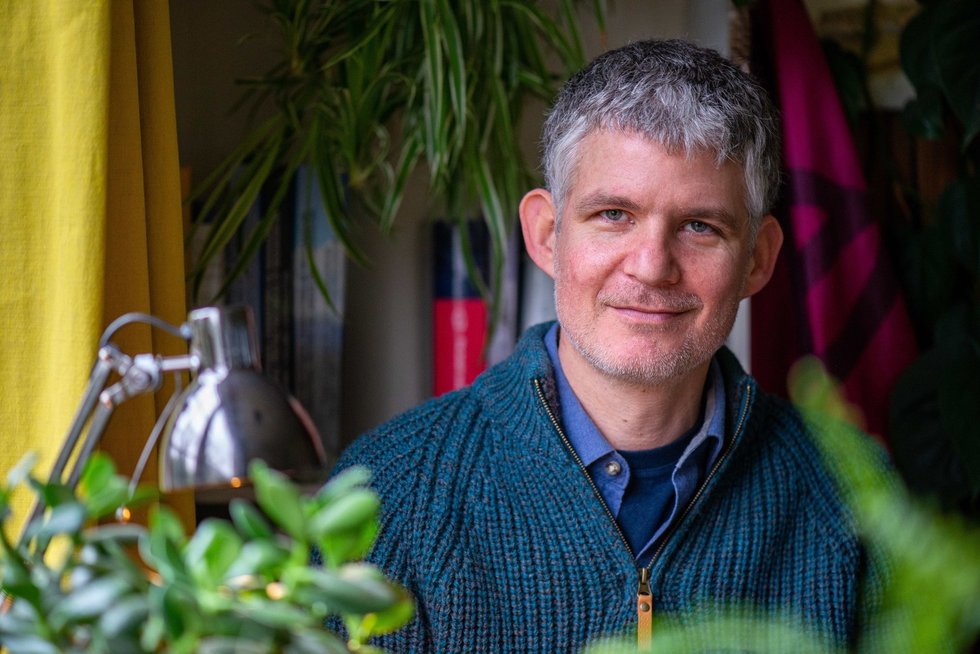

Freelance writer & energy regulation analyst
Dr. Charlie Gardner’s professional identity cannot be summed up by a simple job title: he is, simultaneously, a lecturer and researcher in conservation science at the University of Kent, a practitioner and an activist with Extinction Rebellion. To him, these are not separate roles. They strengthen each other in his determination to align science with activism in order to save our planet. We spoke with Charlie about his unique approach to science and the multiple ways in which he uses his work life to make a real-world impact for all our sakes.
When Dr. Gardner—Charlie, as he asks us to call him—was offered a job at the University of Kent in 2015, he started by teaching a course on the impact of climate change on nature. The experience solidified what he had long felt to be true: scientists must act on their own warnings to humanity. “I was teaching 20-year-olds about climate change and the destruction of nature, the implication of which means they have no future,” he said. “It was just not possible for me to learn this stuff, teach them about it, and not fight it. You can’t know about it and not want to do something if you have a sense of justice.”
A life-long mission
“Now what concerns me is just to be able to maintain a planetary system in which some species can survive.”
For Charlie, 42, that sense of justice developed early on. He was born in the UK, but owing to his father’s job as a hotel manager with an international firm, grew up in Seychelles, Mauritius, and Botswana. His parents were interested in wildlife and became friends with local conservationists. “I grew up surrounded by this idea that we must conserve nature, and that became all I ever wanted to do. If you had asked me at six years old what I wanted to be when I grow up, I would have said, ‘I’m going to be a conservationist.’”
While the passion has remained constant, his drivers have evolved over the years. For most of his life, Charlie has wanted to conserve the diversity of life on our planet. “I’ve always felt that it’s the most tragic thing, that we should destroy these things that have been here before us, just because we use the planet as a resource without any sense of stewardship or care,” he said. Today, however, he thinks it is far too late to save all species. “Now what concerns me is just to be able to maintain a planetary system in which some species can survive.”
Charlie stresses that this is about more than saving birds and reptiles. Rather, “conservation is about preventing a massive humanitarian crisis, which will happen if the forests are gone and the seas are empty.”
From the field…
In 2005, after getting a degree in zoology at the University of Leeds, Charlie fulfilled a long-time dream by moving to Madagascar to work with non-government organizations (NGOs) in setting up protected areas. He did so in close cooperation with local communities who depend on natural resources for their survival. “The old-school approach is, ‘Okay, we build a fence, we guard the protected area with guns, and everybody out.’ That’s unethical, and it’s not a solution. All you are doing is perpetuating conflict and poverty into the future. The only answer is to work with rural populations to create opportunities for them.”
In Madagascar, this is exactly what he set out to do. “Most of the work had nothing to do with forests,” he said. “Our work there was mostly about working with farmers to improve their farming systems so they don’t have to cut down the forests.”
“Conservation is about people first.”
When funders started withdrawing due to the Malagasy political crisis, it became harder to manage the protected areas. Some turned into what Charlie refers to as “paper parks”, little more than a legal declaration. “What’s happening there now is the same as what was happening before the protected areas. There was a sense that we had abandoned local communities and betrayed their trust.”
The experience reinforced his conviction that “conservation is about people first”, which feeds into Charlie’s work up to this day.
…to academia and the streets
“…you need people in front of that bulldozer, slowing it down, addressing the root causes of problems.”
In 2009, Charlie started a Ph.D. on reconciling conservation and development, which he completed remotely from Madagascar. In 2015, he moved back to the UK. The decision was mainly personal. “Conservation is a ‘bad news business’, and I had to move away from the frontlines for my mental health,” he said. Both Charlie and his wife also wanted to move closer to family. Another key reason, though, was a pull to activism.
Charlie was no stranger to activism: as a teenager in the 1990s, he had been “vaguely involved in anti-capitalism and anti-globalization”. After Madagascar, he started thinking more about where he could have real influence—and it didn’t seem to be in fieldwork. “If environmental destruction is a bulldozer, conservation is running behind that bulldozer, trying to put some things back together. But you need people in front of that bulldozer, slowing it down, addressing the root causes of problems.”
Science as we think of it, he says, is not enough to do so. “The assumption of how science works is false. Science is important, but simply generating information is not sufficient. Our leaders have not used our information to make wise decisions. In a time of multiple rapidly accelerating crises, we need to influence policy using different tactics.”
For Charlie, “science rebellion” is key among those tactics.
Getting scientists onboard with rebellion
“Now people have listened to our message, and they care so much that they have taken to the streets! So where are we? Why are the scientists not there?”
The environmental movement Extinction Rebellion (XR) emerged at the perfect time for Charlie: “It finally gave me an outlet for everything that I had been feeling and wanting to do.” Yet at his first XR rally in London, in April 2019, he was stunned to meet doctors, grandmothers, retirees—but no scientists. “I thought, ‘What’s going on? We are the people who have the greatest knowledge about what is happening and what is coming. We have been saying for years that we need to act. Now people have listened to our message, and they care so much that they have taken to the streets! So where are we? Why are the scientists not there?’”
Upon returning home, not only did he immediately start a local XR group, which now has around 250 members, he also became highly involved with the XR Scientists community group. XR Scientists was likely created partly in response to an influential paper written by Charlie and published in Nature, Ecology & Evolution—a rallying cry to fellow scientists to join civil disobedience movements and fight environmental crises.
He acknowledges that many scientists hesitate to publicly align themselves with social movements for fear of losing professional credibility. “By taking a position, people fear being labeled as someone whose outputs cannot be judged as objective,” said Charlie. “That is completely nonsensical.” He points out that fields such as medicine are openly mission-driven. Doctors freely adopt views on what we should and shouldn’t eat to promote human health. “So why should we have this fear of saying what needs to be done for the climate?”
Rather than worry about what public support for social movements can do to their credibility, scientists should consider the positive impact their involvement has on the movement’s credibility. “Those in power always try to dismiss protest movements. With environmental protests, one of the ways that are always done is through painting people as unemployed, weed-smoking hippies, or whatever. Personally, I don’t see the problem with weed-smoking hippies. But it is important to show the powers-that-be that this movement encompasses everybody, including people who they see as more ‘respectable’.”
In some ways, the effectiveness of linking science and activism only became clear after Charlie took up his lecturer position at the University of Kent. He has found that his academic profession gives him “a more powerful voice in activism”. Even with a Ph.D., he feels that “if I was just ‘Charlie the climate campaigner’, nobody would listen to me. But because I’m ‘Dr. Gardner from the University of Kent’, people are prepared to give a chance to what I have to say.”
Acting on all fronts
Charlie leverages this voice in many ways: through teaching, research, writing, conservation consulting, actions on the street, as a spokesperson for social movements, as the Sustainability Lead for his university department, and the list goes on. “I make myself available wherever I can be useful,” he said.
“There is no popular book about modern conservation strategies. I want to write what is, basically, a book on how to save the world.”
Most recently, he contributed to drafting the Climate and Ecological Emergency Bill and is involved in the campaign to get it to a vote in Parliament (95 MPs have expressed their support so far). The bill, he says, “reflects what is required, and not just what is thought to be politically feasible”. It is an example of the credibility Charlie feels scientists can lend to political action, beyond what NGOs alone may achieve. This model has a history of working: the 2008 Climate Change Act started life in the same way.
The ultimate aim woven through Charlie’s work is to make his name as a science communicator. His next big goal is to write a book that he’s had planned out in his head for years. “There is no popular book about modern conservation strategies. I want to write what is, basically, a book on how to save the world,” he said.
“I’m not in a job that I think I could lose because of activism. I have academic freedom to say what I believe.”
When asked how he manages to combine this many activities, he admits that he’s not much of a planner, and “would probably be more effective” if he were. But he also thinks he is lucky. For one, his position at the University of Kent is part-time. His teaching schedule structures his week, but leaves the rest of the time free for other work. That gives some security: “If I were just a career academic, my career would be everything. But for me, without that job, I’d just do more of my other activities.” Second, being child-free means he doesn’t need to take money into account in his professional choices. Lastly, he says, *”I’m not in a job that I think I could lose because of activism. I have academic freedom to say what I believe.”*
Activism is not a radical act—even as a professional
“Being the first to speak is highly influential. It permits other people to speak, too.”
He understands that for some, the need to sustain a career can feel like a barrier to activism. That is not to say, however, that he agrees with this trade-off, which is often based on the negative view that activism is radical. “I want to reclaim the word ‘radicalized’. To me, knowing about the climate crisis and becoming an activist is not radical. It is a rational act of self-preservation. The radical position is knowing that we are allowing our world to get destroyed so that a tiny number of capitalists can continue to accumulate profit. Accepting that is radical. Trying to do something about it is rational, and normal.”
What could others do to act on their concerns about the future of our planet and humanity, regardless of their profession? “Whether you are trying to achieve change in your workplace or beyond, the first step is simply talking to people about it,” he said. “Being the first to speak is highly influential. It permits other people to speak, too.”
Connecting to others who went before you is also important. “Whatever you want to do, other people have tried it. So get advice. It will also make you feel part of something bigger, and this is very reassuring.”
He points to the mental health effects that watching crisis after crisis unfold has on many of us, especially now. “One of the simplest things we can do to overcome paralysis is to just reach out of our comfort zones and have the courage to do something.” Charlie insists that this does not have to take the form of protests. In some ways, he is still unsure of how best to reach his objectives himself. But he does know this: “There is a job for everybody. Give what you can, there is someone who wants it.”
Photos by Louise Jasper for WTTJ
Follow Welcome to the Jungle on Facebook, LinkedIn, and Instagram, and subscribe to our newsletter to get our latest articles every day!

Viac inšpirácie: Inšpiratívne príbehy
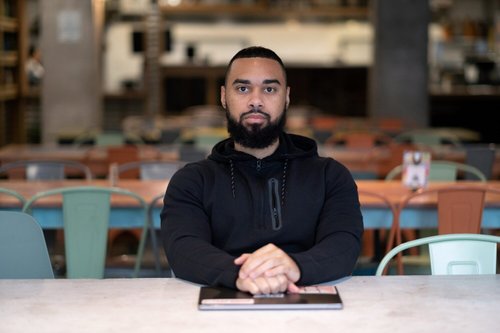
Be real, get ahead: The power of authenticity in your career
Pabel Martinez shares insights on how to allow yourself to be yourself, find your voice, and deconstruct stereotypes at work.
25. 4. 2024
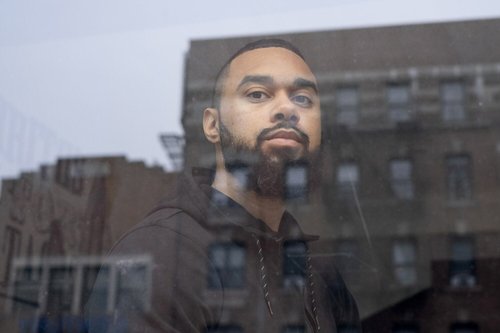
The professionalism paradox: Navigating bias and authenticity with Pabel Martinez
Pabel Martinez challenges the conventional norms of professionalism by unraveling the complexities of workplace discrimination.
11. 3. 2024
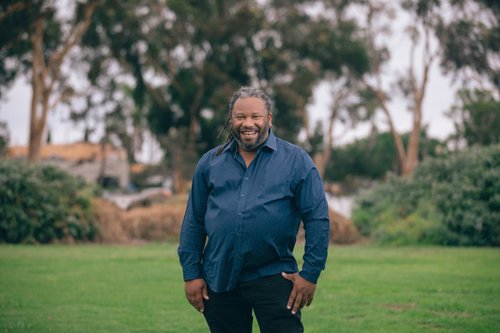
How play can make you happy, creative and productive at work
Work-life balance usually means separating work and play, but it might be a better marriage than you think...
07. 11. 2023
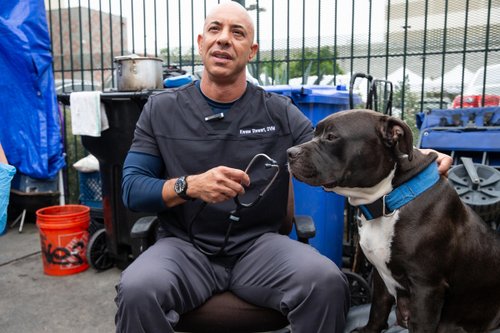
Project Street Vet: Caring for the unseen paws of Skid Row
Providing vet-to-pet care in some of California's largest homeless communities, Dr. Kwane Stewart shares the ups and downs of his remarkable work.
29. 8. 2023
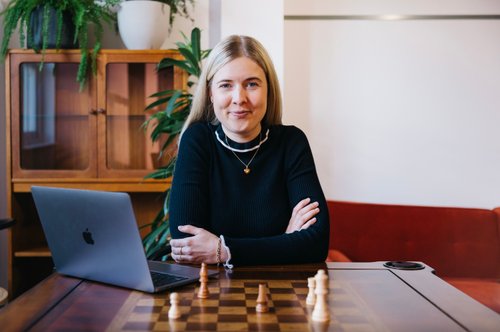
Girls learn how to have fun – and funds – by investing
A Danish trio is fighting gender inequality... on the stock market. We had a chat with one of the co-authors of the book Girls Just wanna Have Funds
30. 1. 2023
Novinky, ktoré to vyriešia
Chcete držať krok s najnovšími článkami? Dvakrát týždenne môžete do svojej poštovej schránky dostávať zaujímavé príbehy, ponuky na práce a ďalšie tipy.

Hľadáte svoju ďalšiu pracovnú príležitosť?
Viac ako 200 000 kandidátov našlo prácu s Welcome to the Jungle
Preskúmať pracovné miesta
